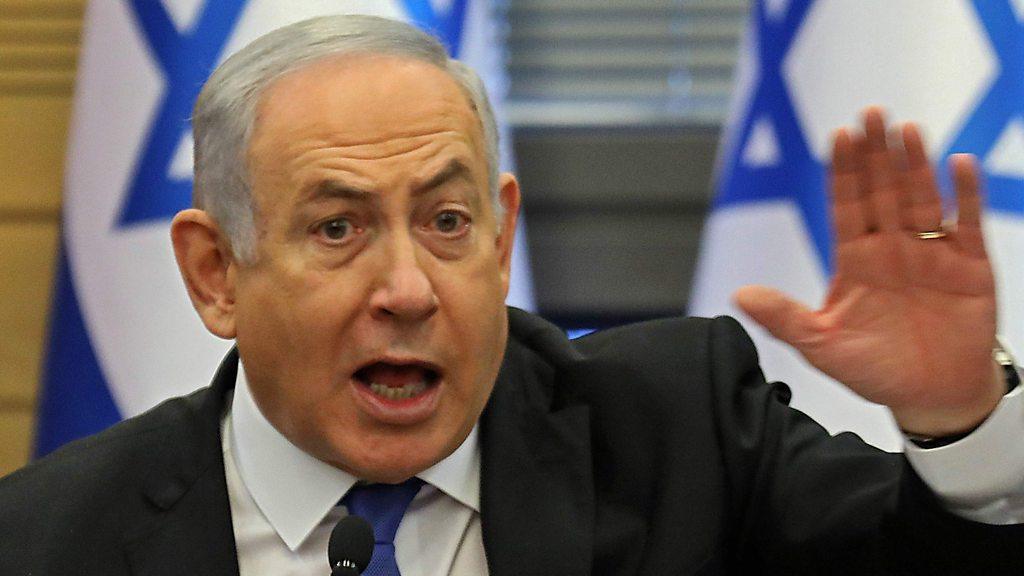Hollywood producer testifies at Netanyahu corruption trial
- Published
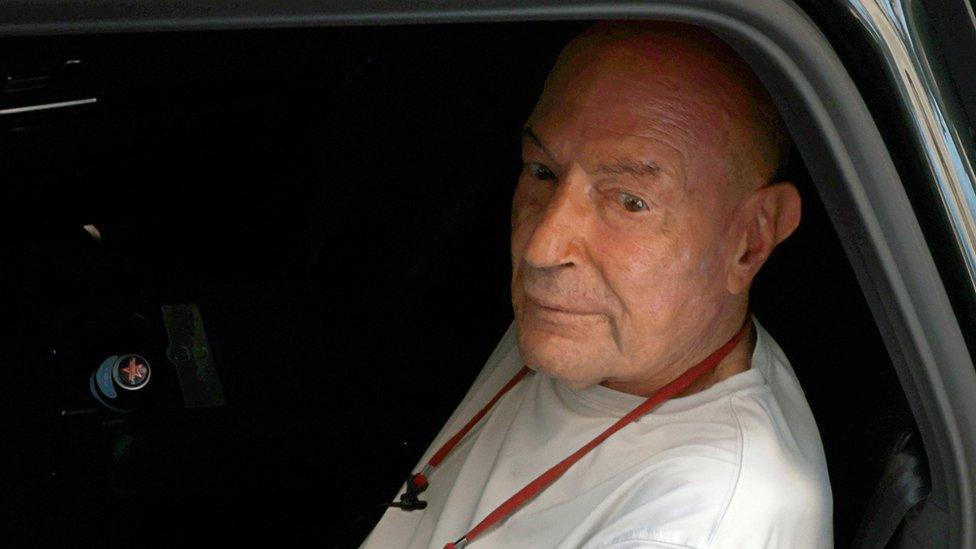
Arnon Milchan is appearing before a remote session of the Israeli court in the English seaside resort of Brighton
With dramatic moments worthy of one of his films, a top Hollywood producer is being cross-examined in the corruption trial of Israel's prime minister.
Arnon Milchan, an Israeli billionaire who now lives in the UK, has conceded that his gifts of pink champagne and cigars to Benjamin Netanyahu and his wife may have been "excessive".
He is a key witness for prosecutors trying to prove charges of fraud and breach of trust in one of three cases against Mr Netanyahu that have cast a long shadow over Israeli politics.
The prime minister also faces charges of fraud, breach of trust and bribery in connection with the two other cases. He denies doing anything wrong, claiming he is the victim of a political witch-hunt.
Mr Milchan, whose film credits include Pretty Woman, Bohemian Rhapsody and 12 Years a Slave, is appearing before a remote session of the Israeli court in Brighton at his request.
His evidence has brought colourful anti-Netanyahu protests to the English seaside city, close to where he now lives, providing an unexpected diversion for holidaymakers.
Questions about Mr Milchan's services to Israel's security are being heard behind closed doors, at the request of defence lawyers. He is understood to have made part of his money as an arms dealer and to have worked with Israeli intelligence since the 1960s procuring weapons.
Early in his testimony, which began on Sunday, the witness described his relationship with Mr Netanyahu as "close friends, almost brothers", saying they liked to discuss history together.
He also suggested there was a patriotic dimension saying: "I can't tell you how many things Bibi and I did in secret for the country."
When the prime minister arrived at the Jerusalem District Court to watch proceedings broadcast live on a screen, Mr Milchan greeted him by saying "Shalom, Bibi", using his nickname.
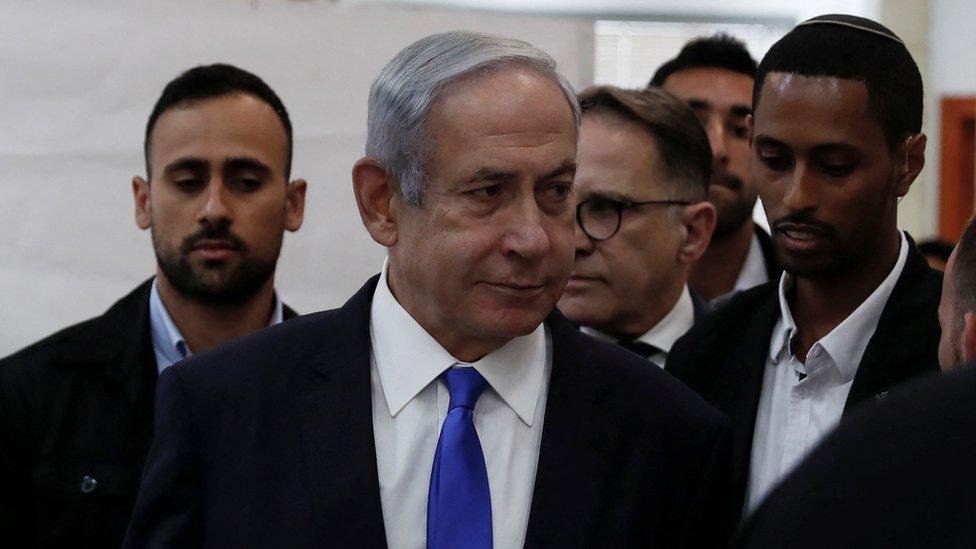
Prime Minister Benjamin Netanyahu denies any wrongdoing and says he is the victim of a witch hunt
Sara Netanyahu has made a private trip to the UK and is being allowed to represent her husband as defendant in the hall of Old Ship Hotel, which has been rented by the Israeli government for the court session.
Prosecutors allege that from 2011 to 2016, Mr Netanyahu wrongfully received almost 700,000 shekels ($191,000; £150,000) worth of gifts from Mr Milchan and an Australian billionaire, which the charge sheet describes as a "supply-line" of champagne and cigars. These were code-named "roses" and "leaves", the court heard.
The movie mogul described how the presents - which also included expensive shirts and jewellery - were at first given spontaneously but over time became routine and were then sometimes sent in response to requests from the recipients.
"Sometimes the leaves were on my initiative, I'd come visit," he told the court. "At other times [Mr Netanyahu] would ask me: 'Say, are there any leaves at home? What about the roses?'"
In return, Mr Netanyahu is accused of using his position to help Mr Milchan with his US visa status and by pushing for legislation that served his business interests, according to an indictment issued in 2019 by the then-attorney general. The prime minister has insisted that the gift-giving he enjoyed from his friends was ordinary behaviour.
During what is known as the Case 1,000 investigation, Mr Milchan was initially suspected of bribery by Israeli police, but the attorney general found no grounds to charge him. Like the prime minister, he denies any wrongdoing. The Australian billionaire is also not facing any charges and denies any wrongdoing.
His lawyers argued for Mr Milchan to be given special permission to testify remotely from Brighton, citing medical grounds for the 78-year-old's refusal to travel to Israel. Court documents show he has not been back to his native country for several years.
The investigations into Mr Netanyahu's conduct began in 2016, leading to his trial which started three years ago. The criminal legal proceedings have helped to create an unprecedented period of political deadlock in which Israel went to the polls five times in less than four years.
Mr Netanyahu's political adversaries have argued that he should not hold office while on trial.
Since he returned to power at the end of last year, after 18 months in opposition, critics have also accused him of advancing a contentious judicial overhaul partly in response to his legal predicament. The prime minister and his allies deny that and say that their planned changes reset the balance between the branches of government.
The ongoing trial has already heard from some 40 prosecution witnesses, including some of the Netanyahus' former close aides and confidants. The testimony of Mr Milchan is expected to last for several more days.
There has been repeated mention of a plea bargain, but without any deal materialising. Last week, the Israeli media reported that judges had warned the prosecution that the most serious crime of bribery would be hard to prove.
- Published21 November 2024

- Published17 January 2022
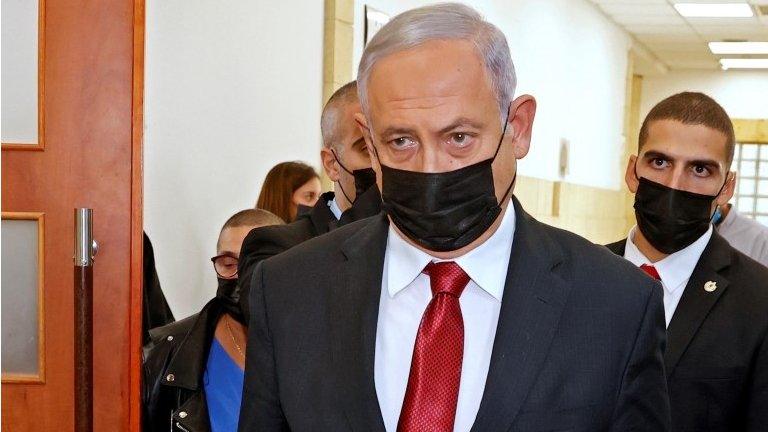
- Published5 April 2021
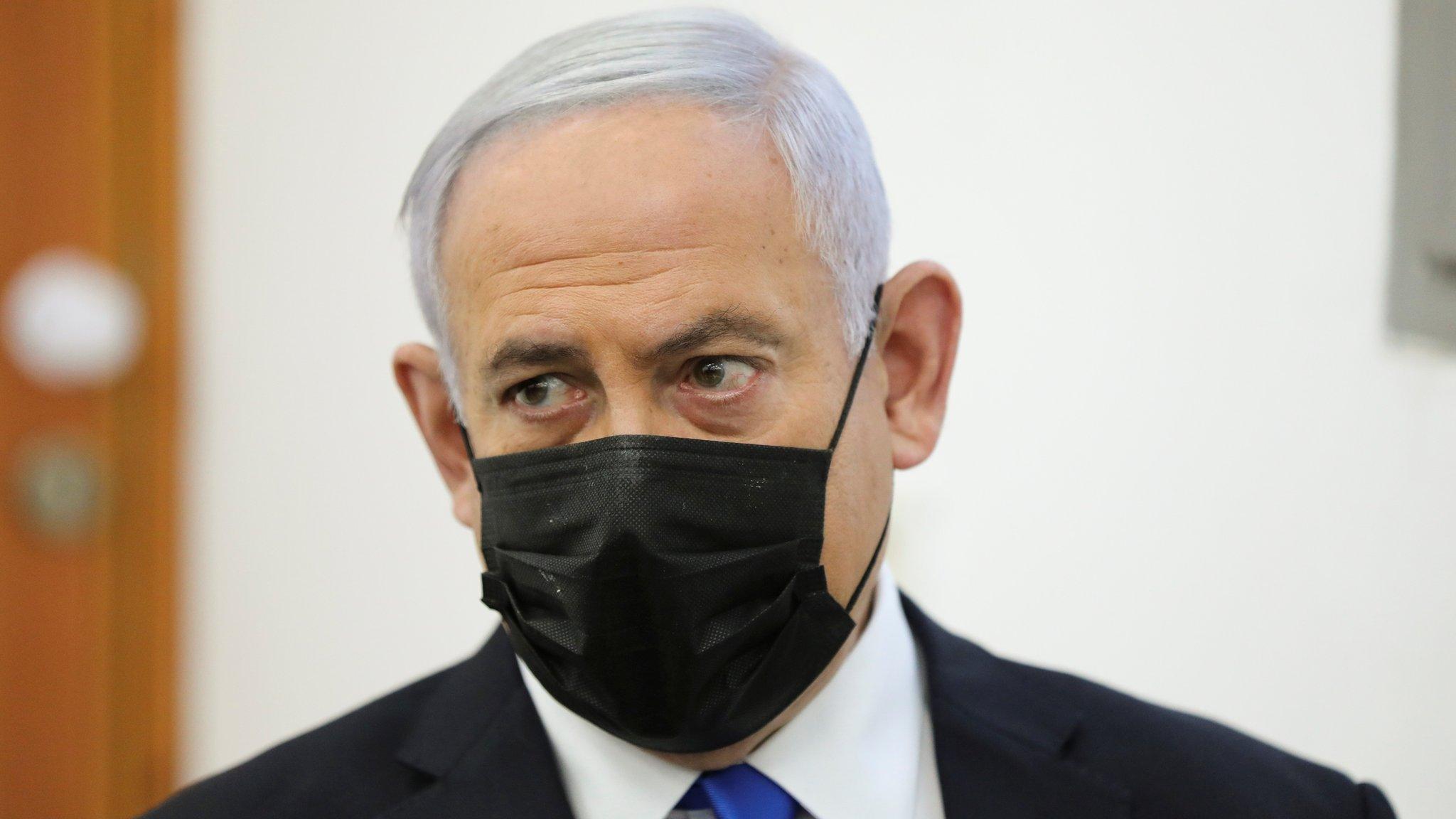
- Published8 February 2021
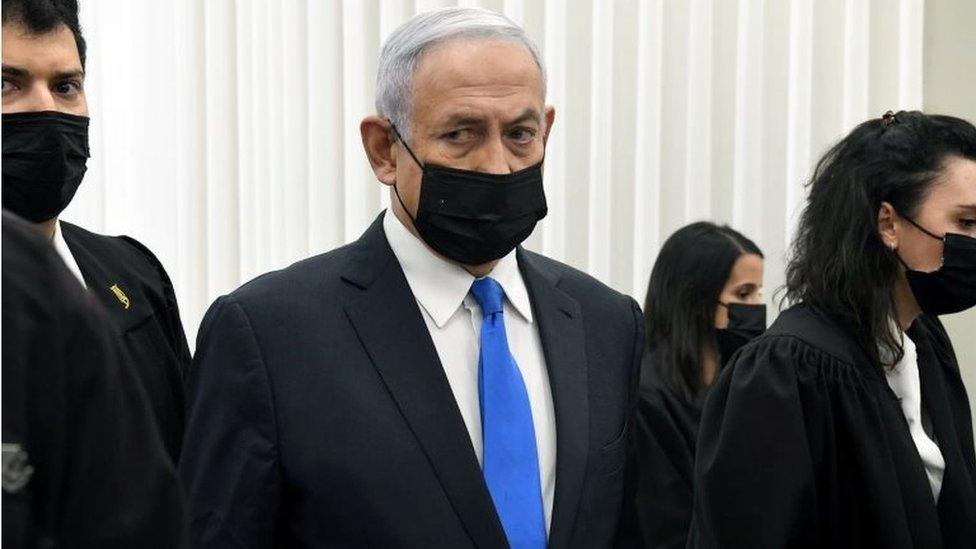
- Published24 May 2020
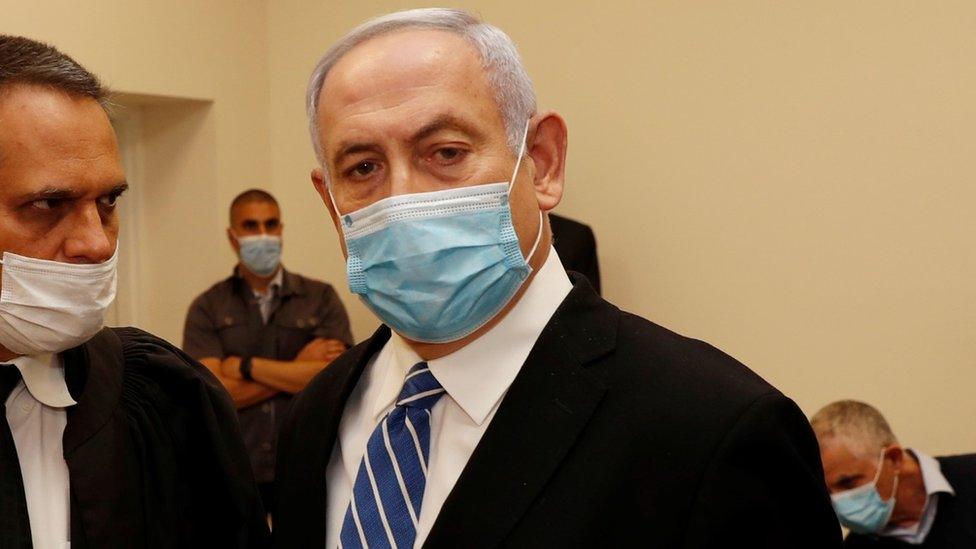
- Published22 May 2020
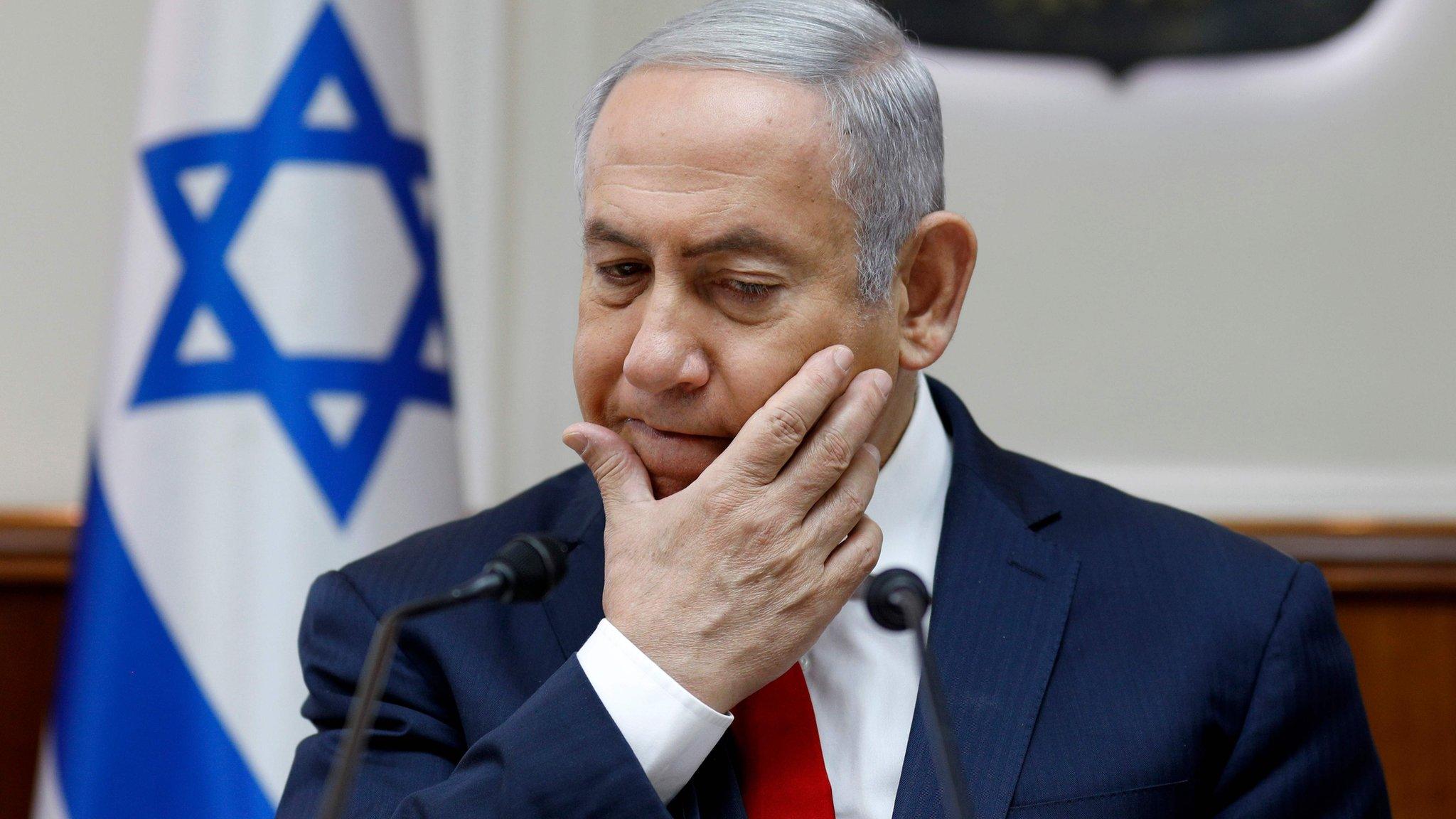
- Published21 November 2019
